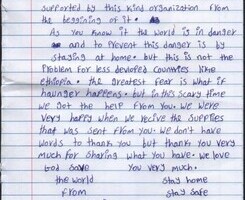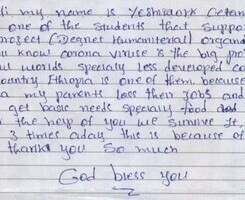Breaking The Cycle of Poverty For Children: Supporting families in Ethiopia during the COVID-19 Pandemic
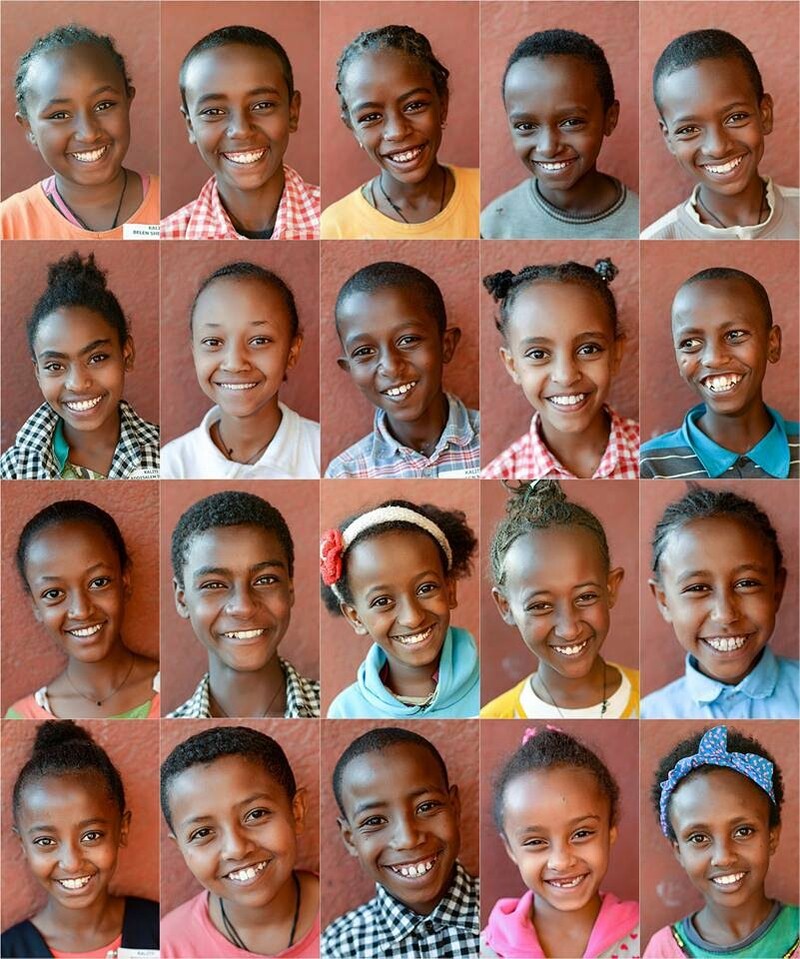
Medicine Hat-based organization, Canadian Humanitarian, has been working since 2003 towards breaking the cycle of poverty for children so that they can reach their full potential. They believe that by giving children opportunities to grow intellectually, physically, emotionally, and socially, they will grow up and change the world. Since COVID-19 has struck, they have shifted their efforts in Ethiopia on responding to the urgent needs and demands for the children and their families.
Canadian Humanitarian has a unique educational program that helps destitute, orphaned, high risk, and vulnerable children become free from the self-perpetuating cycle of poverty. Each center in Ethiopia has its own staff and 50 – 70 families as beneficiaries. Canadian Humanitarian programs have impacted hundreds of lives, moving children out of poverty and social exclusion, to becoming fully contributing citizens of their communities.
They provide additional support through after school programs, such as individual tutoring, proper nutrition, medical and dental care, counseling, mentoring, exploring talents with special interest clubs, and opportunities for leadership amongst peers. These essential systems of support allow their students to grow to be educated, productive community members and move them out of poverty, to a future of independence in which they are able to sustain their own families. The alumni give back through volunteer services at the afterschool program and help the next generation of young people.
Due to COVID-19’s public gathering restriction, closure of schools, and sheltering at home, Canadian Humanitarian’s students require intervention for survival.
EMERGENCY NUTRITION and HYGIENE SUPPORT:
All after school support programs have had to be paused, due to sheltering at home and group gathering restrictions under the Emergency Measures regulations in effect. Within days, the students and their families faced hunger and potential starvation when open markets that their guardians earned a living through closed. Canadian Humanitarian’s head office, in coordination with each program’s management staff, began emergency nutrition and hygiene support programs to ensure that the students and their families received staples for basic diet, laundry soap, body soap, hair oil, and dental supplies for their personal grooming.
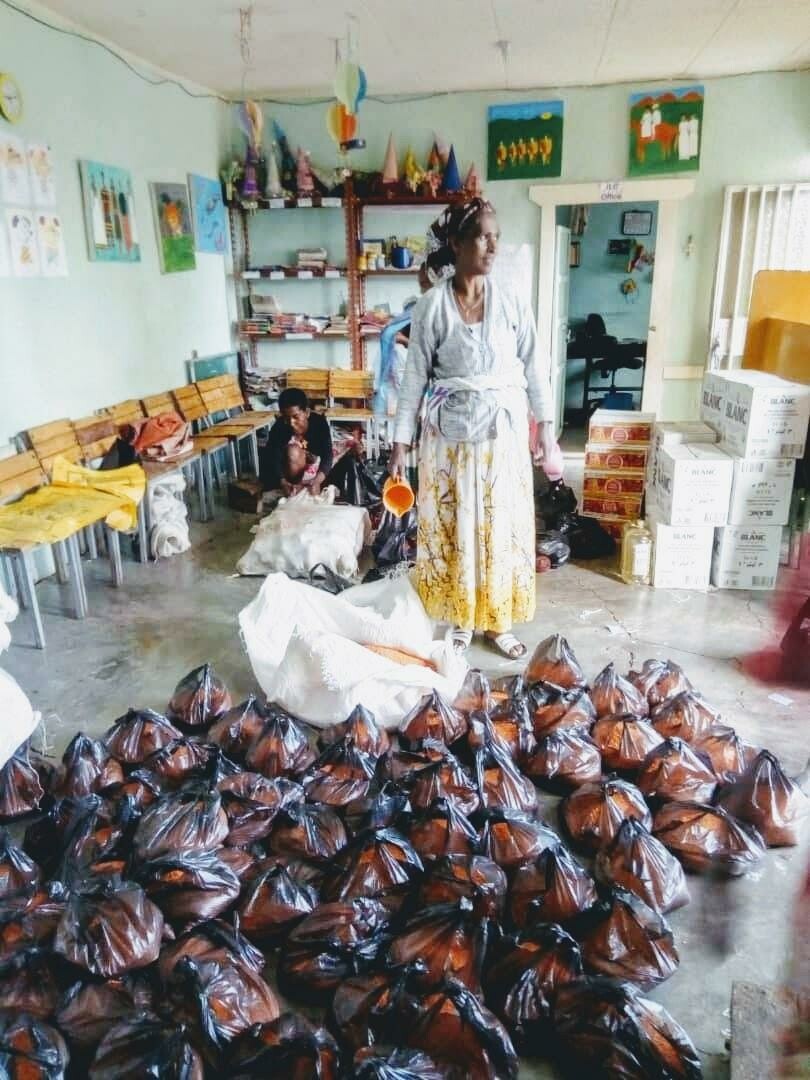
Staff with food packages laid out
EDUCATIONAL SUPPORT:
Ethiopia’s public and private schools have few options for helping students remain connected to their school term work. Those in place are done by television broadcasts, mobile phone texting, and transfer of homework by mobile data. Canadian Humanitarian’s tutoring team worked to put together weekly homework packages for each grade based on the national curriculum. Students who have questions are able to connect with a tutor via phone or leave a message to get the help they need.
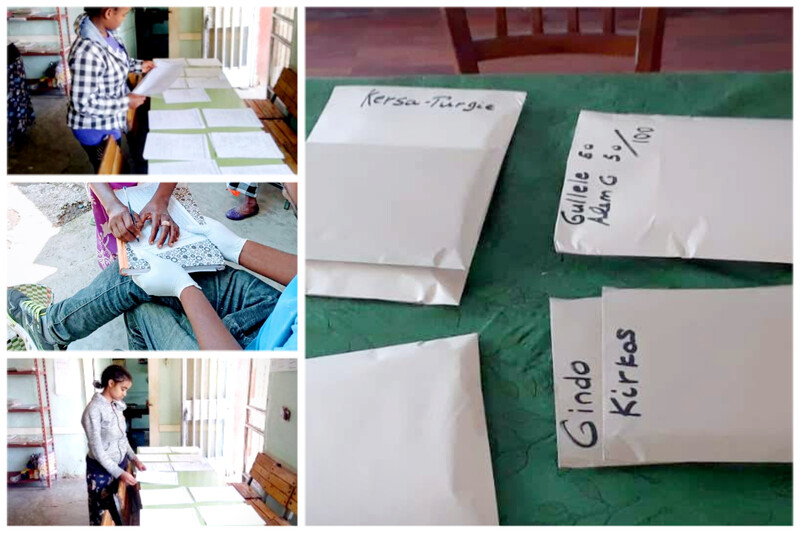
Staff prepare homework
SECURITY:
With children out of school, the risk for abuse and assault, particularly for girls, is higher than when they are at school and under the protection of the afterschool program. Canadian Humanitarian programs have worked out a plan so that one staff member is at the afterschool center, near the homes of the students, for emergency contact. During this time, program staff are phoning student’s families weekly to verbally discuss any issues that staff can assist with and to maintain a relationship of support. Any identified interventions are responded to as soon as possible, following current restrictions.
All Canadian Humanitarian program staff are doing their best to keep the guidelines for social distancing, sheltering at home, and prevention of COVID-19 spread. Face masks, hand washing, distancing are all part of those efforts.
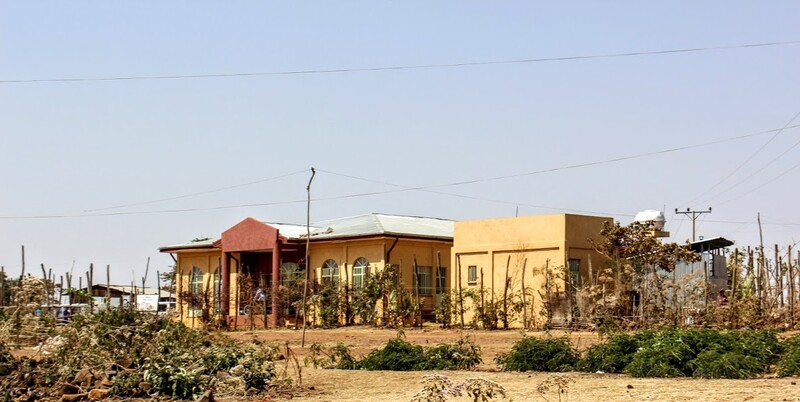
Facilities in Ethiopia

